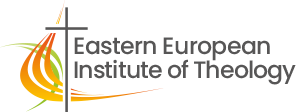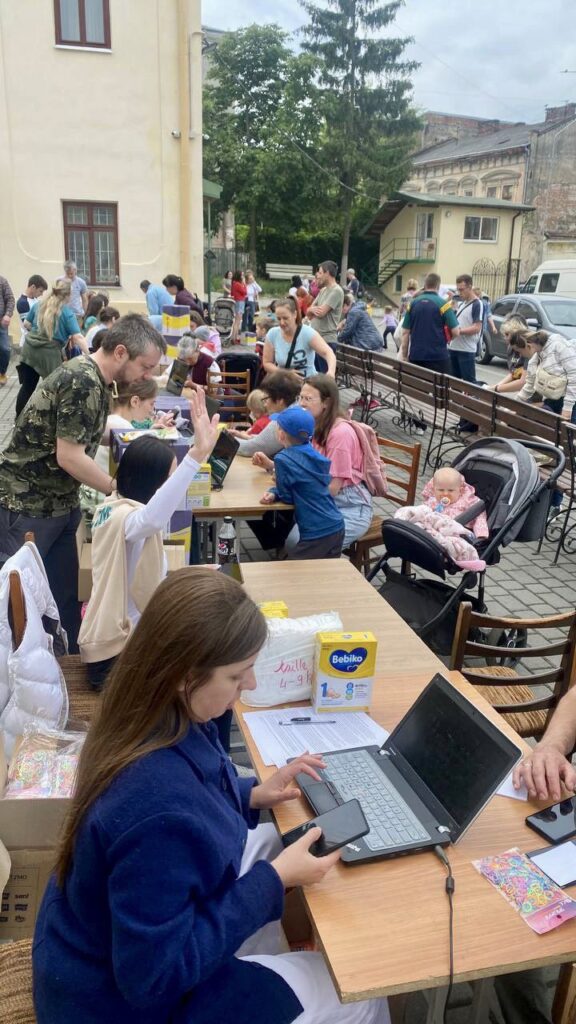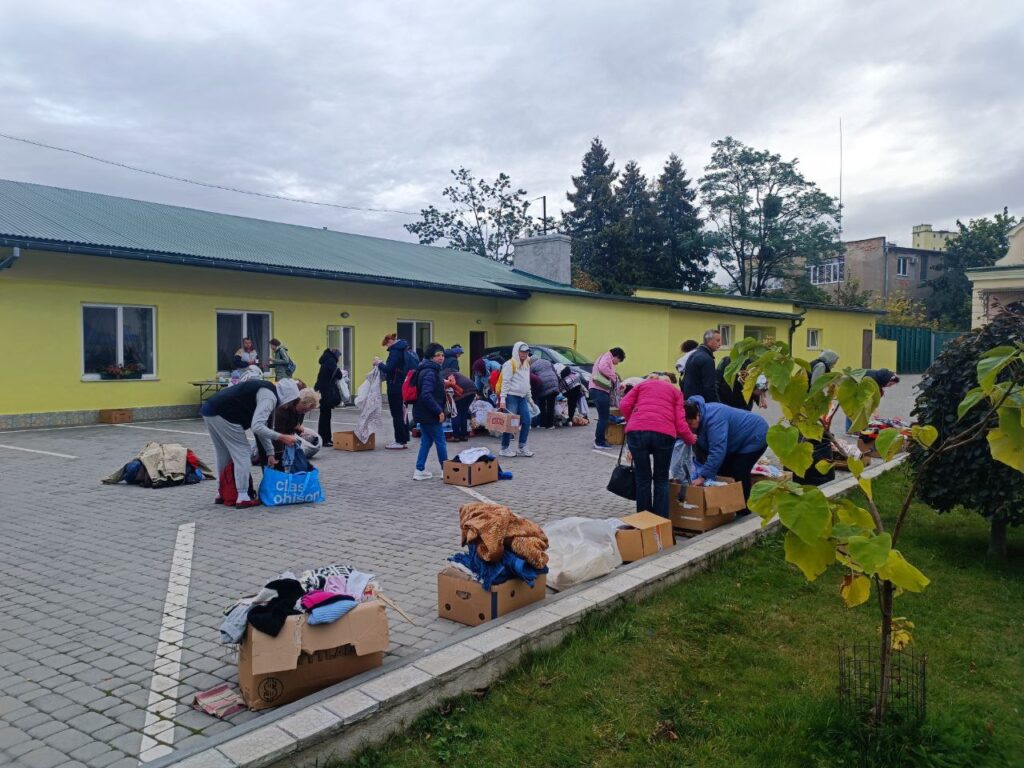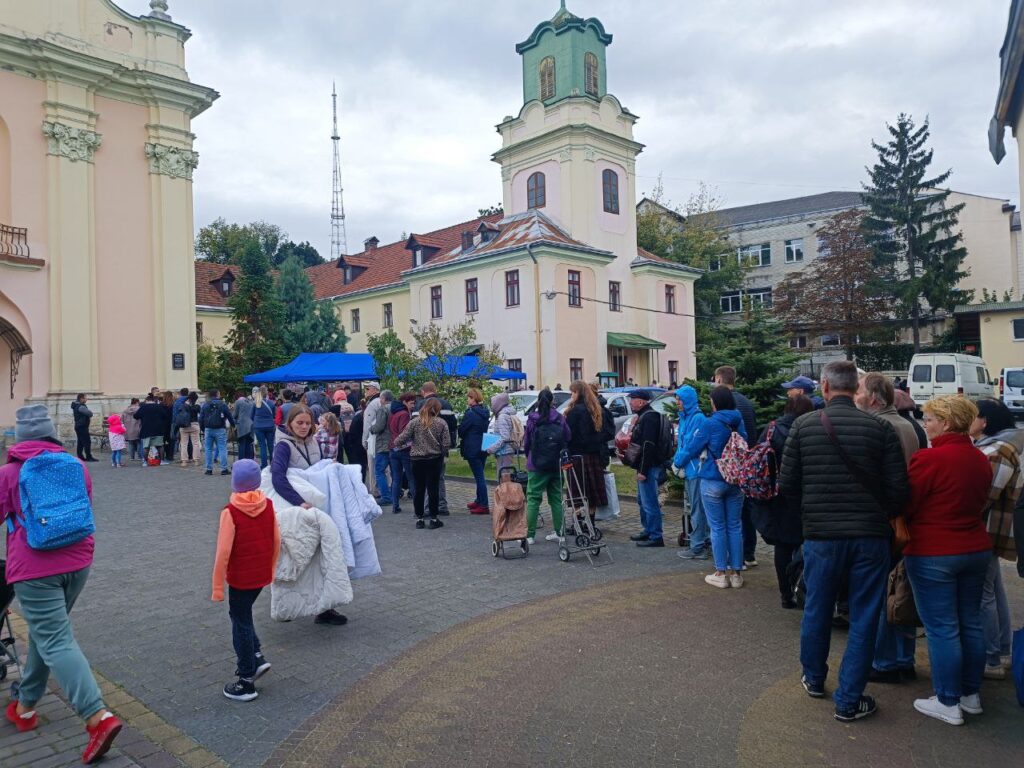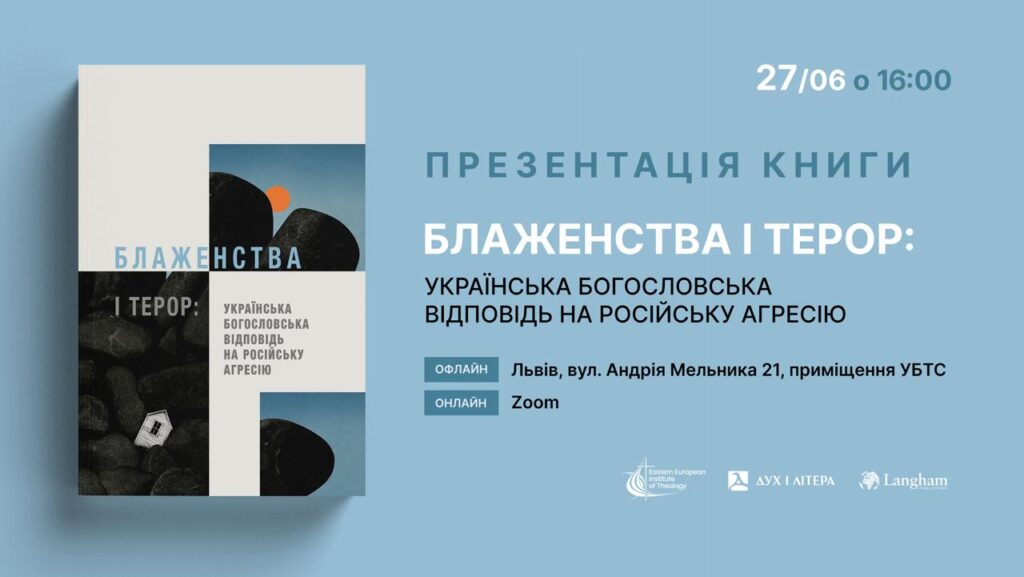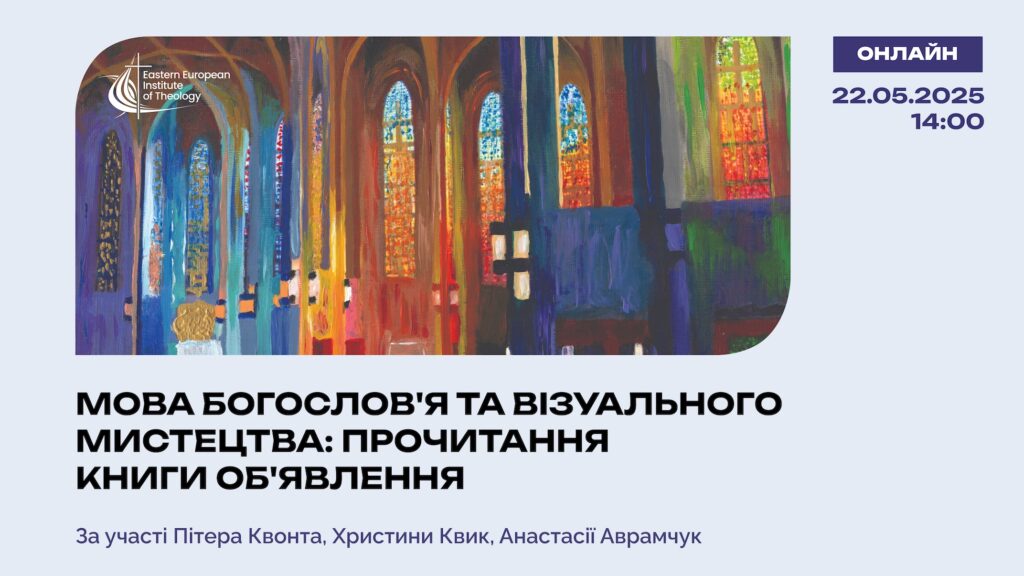Taras Dyatlik On The Ministry of Seminaries and Partner Organizations during the Russian-Ukrainian War
Taras N. Dyatlik, Vice-Rector for Development and International Cooperation at the Eastern European Institute of Theology, Engagement Director at ScholarLeaders International, Theological Education Consultant at Overseas Council-United World Mission tells about the network of evangelicals hubs and their ministry during Russia's full-scale war against Ukraine.
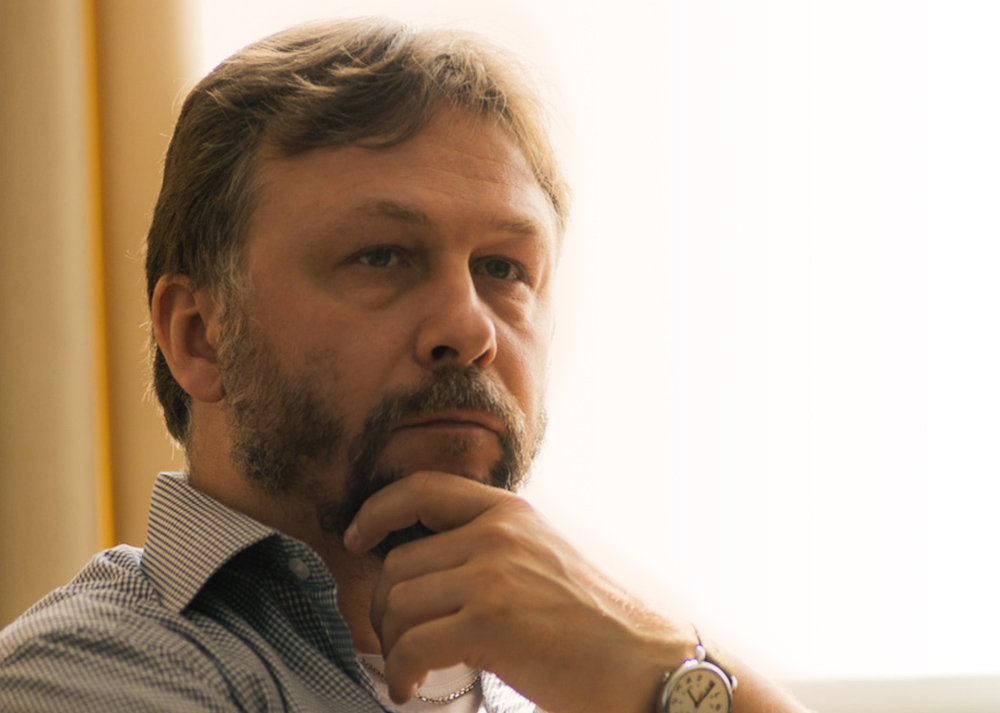
Taras Dyatlik, Vice-Rector for Development and International Cooperation at the Eastern European Institute of Theology.
In these trying times, when the ongoing full-scale Russian war plagues Ukraine more and more, there emerges a radiant light, a testament to the enduring power of faith and the boundless reach of Christian hospitality. We witness a remarkable convergence of theology and humanitarianism – a convergence that embodies the very essence of the Kingdom of God.
We invite you to join us in celebrating this extraordinary union during the ongoing full-scale war in Ukraine and to respond to the call of Christian hospitality, which is an imperative of the Kingdom of God.
The "People of the Bridge" (as I call this group) have transcended the boundaries of theological education to extend their mission towards humanitarian relief, proving that faith is not stagnant but alive and responsive. We write very little about our work and ministry, but this does not mean that we are inactive, nor are other theological educational institutions in Ukraine that are not mentioned in the list below.
They have shown that theology and theological training are not just about abstract ideas but a practical, compassionate expression of love for Jesus Christ and our neighbors, especially in the most challenging of times. These hubs are a remarkable illustration of how theology and service are not separate entities but interwoven strands of a higher purpose. The students, faculty, and leaders of these seminaries use their knowledge and skills to make a real difference in the suffering and broken world.
When theology meets necessity, hope springs eternal through faith in action. Bridging the gap between principles and practice, the seminary-based refugee hubs stand together, spreading light amid the darkness. Guiding the lost and healing the broken, they transcend walls to serve broken humanity, providing refuge and seeds of renewal. Serving the displaced while educating future leaders, these beacons of hope demonstrate that theology can unite with humanitarianism. Despite the tragic devastation, their work proves that hope and God's love endure, illuminating the path forward. Though the night may seem endless, the dawn will come.
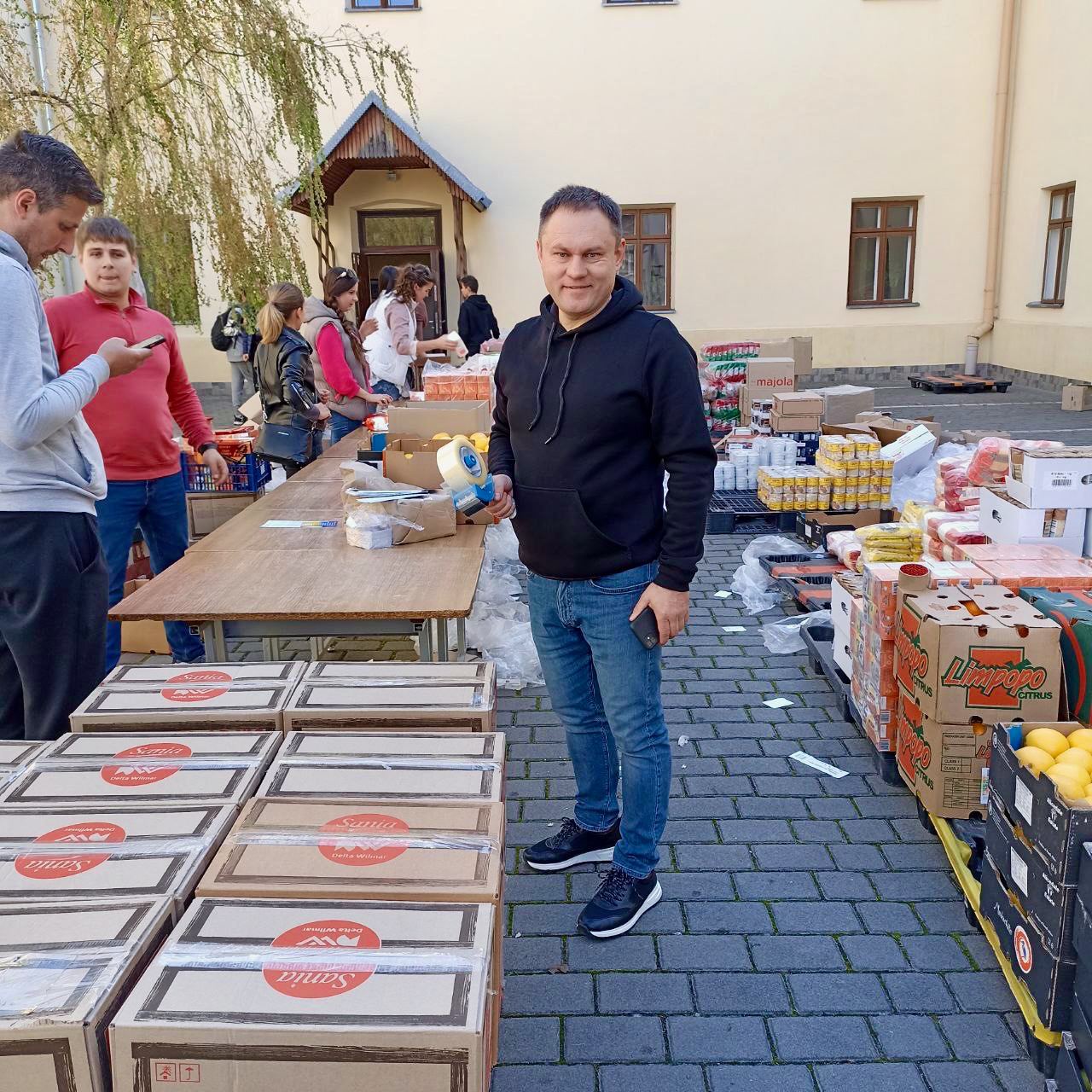
The network of seminary-based refugee hubs was established in partnership with Overseas Council-United World Mission and ScholarLeaders International in late February and early March 2022 after the full-scale Russian invasion of Ukraine. The refugee hubs are established within seminaries, extending their role beyond theological education to engage in humanitarian relief efforts actively. They have provided essential support to refugees and internally displaced people, including food, shelter, medical care, and emotional and spiritual support. They have also played a vital role in evacuating people from dangerous areas and helping them to find safe temporary and permanent homes.
Here is the roster of seminaries and organizations that help refugees from Ukraine in partnership with Overseas Council & ScholarLeaders:
- Chernivtsi Biblical Seminary (Chernivtsi, Ukraine)
- Dialogue in action (bridge a divide)
- Eastern European Institute of Theology (Lviv, Ukraine)
- Evangel Theological University (Kyiv, Ukraine)
- Kremenchuk Evangelical Seminary (Kremenchuk. Ukraine)
- Lviv Theological Seminary (Lviv, Ukraine)
- MH-Care (Counseling Group)
- Odesa Theological Seminary (Odesa, Ukraine)
- Tavriski Christian Institute (relocated from Kherson to Ivano-Frankivsk, Ukraine)
- Transcarpathian Christian Institute (Khust, Ukraine)
- Ukraine Bible Society (Kyiv, Ukraine)
- Ukrainian Evangelical Theological Seminary (Pushcha Vodytsya, Ukraine)
- University Divitia Gratiae (Chisinau, Moldova)
- Zaporizhia Bible Seminary and College (Zaporizhia, Ukraine)
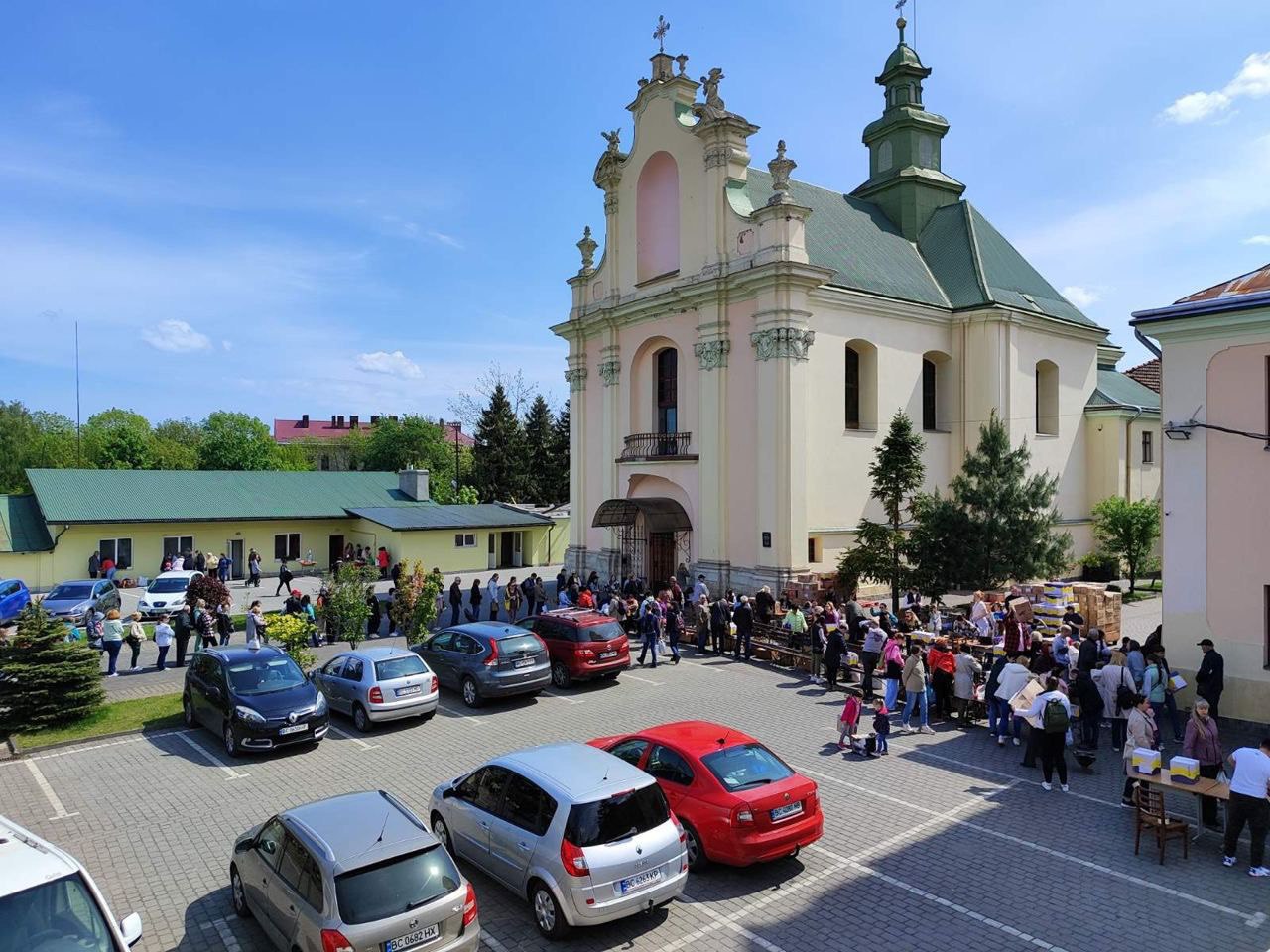
In the 550 days since the full-scale war engulfed our land, the network of seminary-based refugee hubs has been a lifeline to those who have lost their homes and their way of life. These hubs have shown their unwavering commitment to Christian hospitality by:
- 484 volunteers have selflessly sacrificed their time and energy to provide critical support and assistance to refugees and other people affected by war and displacement despite their many challenges; they have faced many challenges but have persevered.
- 1,513 internally displaced people have found new hope and life in their Communities of Hope by accepting Jesus as their Savior and joining local churches through baptism, thanks to the ministry of the seminary-based refugee hubs.
- 2,149 theology students continue their theological education in 10 seminaries in Ukraine and Moldova, finding the value of theological education during the war to be even more sharpened by joining theological studies with practical service to internally displaced people and needy people who suffer the ongoing war.
- 2,270 people with disabilities, including evacuees, civilians, military who lost their limbs, and people with concussions, have received essential support and care from the seminary-based refugee hubs during this challenging time.
- 5,004 tons of food and other essential items have been delivered.
- 8,653 refugees received long-term shelter on seminary campuses, where they were provided with food, clothing, and other essential supplies, as well as assistance with healthcare, legal aid, and resettlement.
- 11,444 people were evacuated from dangerous areas despite the challenges of ongoing shelling, lack of safe routes, and damage to infrastructure.
- 42,340 civilians and military personnel have requested psychological, emotional, and spiritual support to cope with the effects of trauma.
- 43,838 refugees received short-term shelter as they transitioned through the seminary campuses from the war zones to safer locations in Ukraine or abroad.
- 411,078 Bibles and New Testaments have been distributed to people directly impacted by the war.
- 501,348 needy people, particularly among vulnerable populations such as children, women living alone, widows, and the elderly, have received food supplies in formerly occupied territories, liberated territories, and near the war zone and front lines.
But it's more than just numbers: it embodies Christian hospitality. It's about living out the words of Jesus, who said, "I was hungry, and you gave me food; I was thirsty, and you gave me drink; I was a stranger, and you welcomed me." (Matthew 25:35) This is the heart of the Kingdom of God, “not yet, but already yes.”
In a world torn by strife, theological seminaries have a divine duty to bridge the gap between theological principles and the immediate need for humanitarian relief during the ongoing full-scale Russian war in Ukraine.
Christian hospitality is isn't just a virtue; it's a mandate from God. In these challenging times, let us rise to the occasion and demonstrate our love for neighbors in need, integrating theological knowledge with selfless service. The Kingdom of God is at hand, and through your support, we can bring it closer to reality.
Let us not forget that our mission of hospitality transcends borders and encompasses all those in need. We pray and do our best through theological education, psychological assistance, and humanitarian service to ensure that the light of the Kingdom of God shines in every corner of our country and society.
The call to support these hubs is not just about philanthropy; it's a call to live the Gospel message. When we extend Kingdom hospitality, we echo the words of Leviticus 19:34: "The foreigner residing among you must be treated as your native-born. Love them as yourself, for you were foreigners in Egypt."
Taras N. Dyatlik (OC-UWM, SL), on behalf of the Ukraine Coordination Group, which includes
Roman Soloviy (Langham, EEIT), Olga Marchak (OC-UWM, EEIT), Ivan Rusyn (UETS), Oleksandr Geychenko (OTS), Valentin Siniy (TCI), Kseniia Trofymchuk (EEIT), Kateryna Shutko (EEIT).
Follow this here and you can sow seeds of hope and love in war-torn communities where our seminaries serve. Together, we can extend God's Kingdom in the broken lives of hundreds of thousands and even millions of internally displaced people and refugees through your generous support.
